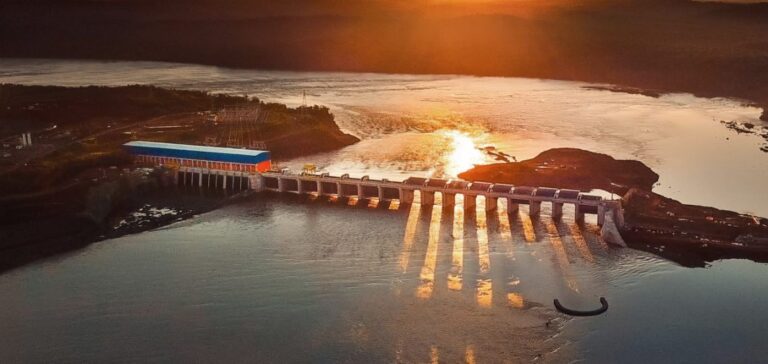Energy company ENERGO-PRO a.s., headquartered in Prague, has signed an agreement to acquire the Baixo Iguaçu hydropower plant in Brazil for more than €250 mn (CZK6.3bn). Located in the state of Paraná, the 350-megawatt facility, commissioned in 2019, marks the largest transaction ever by a Czech investor in Latin America. The deal is financed through a combination of internal capital and external funding, with completion expected in summer 2025, pending regulatory approval.
Strategic expansion in the Brazilian market
Upon completion, Baixo Iguaçu will become ENERGO-PRO’s largest facility in terms of installed capacity. The group currently operates over fifty hydropower plants across five countries: Bulgaria, Georgia, Spain, Türkiye and now Brazil. With the addition of Baixo Iguaçu, ENERGO-PRO’s total installed capacity will reach 1,850 megawatts, approaching that of the Mochovce nuclear plant in Slovakia.
This move continues the group’s expansion in South America, initiated last year with the acquisition of seven small hydropower plants in Brazil totalling 90 megawatts. Simultaneously, ENERGO-PRO is constructing another hydropower station in Chorreritas, Colombia, scheduled to become operational in 2026.
Financial positioning and regional outlook
ENERGO-PRO Chief Executive Officer Jakub Fajfr noted that this acquisition is a key step in the group’s geographic diversification strategy, aiming to enhance resilience to hydrological, geopolitical and economic risks. He added that electricity sales from Baixo Iguaçu are secured by long-term Power Purchase Agreements indexed annually for inflation, providing reinforced financial stability.
Built between 2014 and 2019 at a total cost of €500 mn, the Baixo Iguaçu hydropower plant features three Kaplan turbines and a 32 km² reservoir. It generates approximately 1,584 GWh annually, equivalent to the consumption of one million Brazilians. The facility holds a concession valid until 2049 and includes a 60-kilometre transmission line.
Rapid growth in the Latin American portfolio
Following the deal, ENERGO-PRO will have invested in eight hydropower facilities in Brazil, totalling 440 megawatts in installed capacity and an enterprise value close to €500 mn. The Baixo Iguaçu plant was fully owned by Companhia Paranaense de Energia (COPEL), a Brazilian firm that had previously held a 30% stake before acquiring the remainder prior to the sale.
This acquisition positions ENERGO-PRO as a major European player in the South American energy market, solidifying its presence beyond its historic Eastern and Southern European markets. The group is thereby reinforcing its international development strategy, with assets now spanning two continents and multiple strategic regions.






















